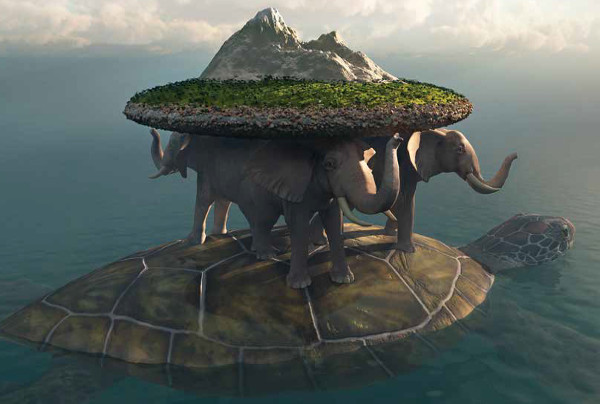The universe is a mystical concept. It is not the name of a fully known object, but refers to something which by definition cannot be known in the concrete.
 Counter-examples: My dog Fifi and my cat Cleopatra are two household pets, each with distinct appearances and ordinary as well as some unusual habits. I can give lots of descriptions of them which will make them familiar, even recognizable to others. I could include a photograph of each and even an odometer-reading! Furthermore their existence is not in doubt, although each has problems articulating their own existence and neither can say “cogito ergo sum” or its equivalent in dog or cat language (of course I would not understand either).
Counter-examples: My dog Fifi and my cat Cleopatra are two household pets, each with distinct appearances and ordinary as well as some unusual habits. I can give lots of descriptions of them which will make them familiar, even recognizable to others. I could include a photograph of each and even an odometer-reading! Furthermore their existence is not in doubt, although each has problems articulating their own existence and neither can say “cogito ergo sum” or its equivalent in dog or cat language (of course I would not understand either).
What makes the universe such a problematic concept? I have called it in fact a “mystical concept”. The concept seems to be a member of a species of names of things, to which new instances can be added without necessarily changing the concept. The concept is therefore open-ended like talking about “all humans” even though additional humans are added as I write, each one presumably different from others. What does it mean then to have a “Theory of the Universe” if it cannot be confined and contrasted with other events? The answer is that a “Theory of the Universe” is an inadequate manner of stating three entirely different problems:
- If the term *universe* refers to all that we known about the universe so far, but not what else could be discovered about it tomorrow. If you cannot complete the list you do not have a comprehensive concept! Adding “etc., etc.” or “ad infinitum” won’t do.
- If we examine the methods and means we have used to specify the universe, how can we be sure that there are not other methods that could have been used to draw up and codify its features. We have a nasty suspicion that other methods could be deployed or invented.
- If we can formulate an explanatory theory for all we already know about the universe, what would a replacement theory to this have to be like to be a candidate to replace the reigning theory? What features would it have? What tests would the theory have to face to continue as an unchallenged, non-contentious theory?
If we accept that problems 1-3 cannot be overcome this may be because we are dealing with a mystical concept and not with a concept which covers a particular field.
In regard to #3, once we have discovered that our reigning “Theory of the Universe” has generated contradictions which have to be removed, that we may have already discovered additional matters about our universe which confound our earlier conceptions. Only theories which make provision for all contingencies are resistant to fault-finding, and these would include the presence of mystical entities and processes, like, respectively, “the universe” and “create”.
Finale: The world as I know it is not a mystical concept but contains a welcome admission that I do not, and cannot, know everything. Furthermore I cannot know all things equally well, but I can be incredibly ignorant about many things. It is a sad fact that the expression “abysmal lack of knowledge” has meaning and much application.
